Mark Rubinstein's Blog, page 19
March 5, 2015
“The Assassin” A Talk with Clive Cussler
Clive Cussler is an adventure novelist and marine archaeologist. His thrillers have reached T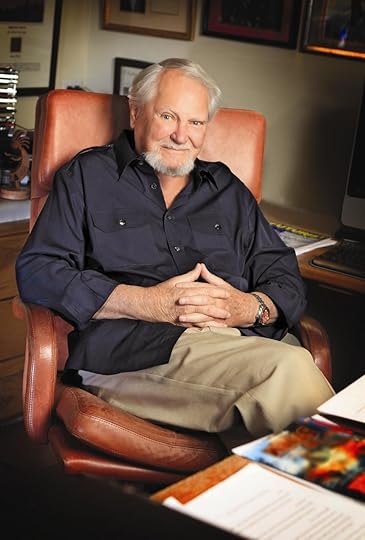 heNew York Times best-seller list more than 20 times. His books have been published in 40 languages in more than 100 countries. He is the founder and chairman of the National Underwater and Marine Agency (NUMA), which has discovered more than sixty shipwreck sites. He is the sole or lead author of more than 60 books. After his discharge from the military, he worked in advertising, first as a copywrite...
heNew York Times best-seller list more than 20 times. His books have been published in 40 languages in more than 100 countries. He is the founder and chairman of the National Underwater and Marine Agency (NUMA), which has discovered more than sixty shipwreck sites. He is the sole or lead author of more than 60 books. After his discharge from the military, he worked in advertising, first as a copywrite...
February 18, 2015
“Twelve Days” A Talk with Alex Berenson
Alex Berenson, a former New York Times reporter, covered topics ranging from the occupation of Iraq; the flooding of New Orleans; to the financial crimes of Bernard Madoff. He’s written eight previous John Wells novels, all geopolitical thrillers, with his first, The Faithful Spy, having won the 2007 Edgar Award for Best First Novel.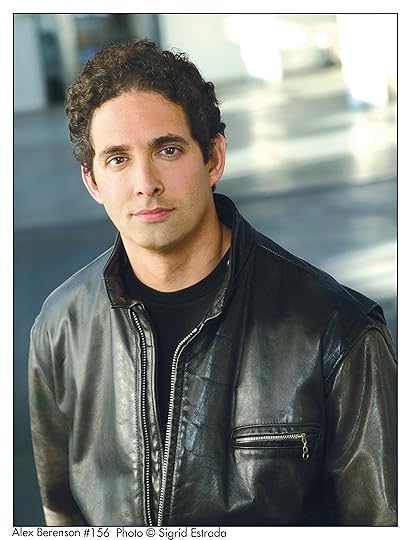
His ninth John Wells thriller, Twelve Days, has ex-CIA agent Wells and his associates uncovering a huge plot: a secret plan to convince the President to attack Ir...
February 9, 2015
‘Blood Infernal’ A Talk with James Rollins
With his books published in more than 40 languages, James Rollins is know n to millions of readers. A true Renaissance man, he’s much more than an author of explosive thrillers. He’s a veterinarian, man of science, and the author of bestselling novels evocative of the works of Michael Crichton and Isaac Asimov. His novels are rich with history, scientific fact, ecologic perils, and threats of global destruction, woven tightly with fantasy and suspense. His thrillers transcend all genres.
n to millions of readers. A true Renaissance man, he’s much more than an author of explosive thrillers. He’s a veterinarian, man of science, and the author of bestselling novels evocative of the works of Michael Crichton and Isaac Asimov. His novels are rich with history, scientific fact, ecologic perils, and threats of global destruction, woven tightly with fantasy and suspense. His thrillers transcend all genres.
Writte...
‘Long Way down’ A Talk with Michael Sears
Michael Sears’s financial thriller, Black Fridays was an award-winning debut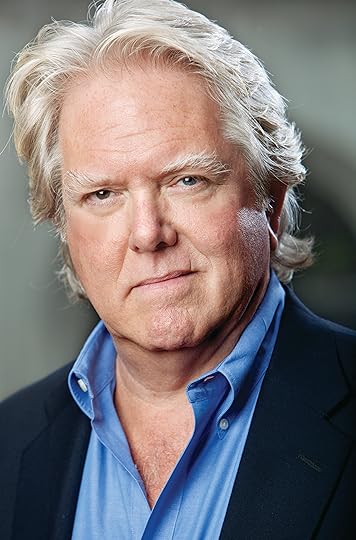 novel. It was followed by Mortal Bonds, the second in the Jason Stafford series.
novel. It was followed by Mortal Bonds, the second in the Jason Stafford series.
Before turning to fiction, Michael was a Wall Street veteran and managing director at two major brokerage firms. With his extensive and intimate knowledge of the sometimes mystifying world of finance and Wall Street intrigue, he has written the highly successful Jason Stafford series of thrillers.
In Long Way Down, the third in the series,...
January 24, 2015
“Crash and Burn” My Talk with Lisa Gardner
Lisa Gardner is the New York Times bestselling author of crime thrillers with more than 22 million books in p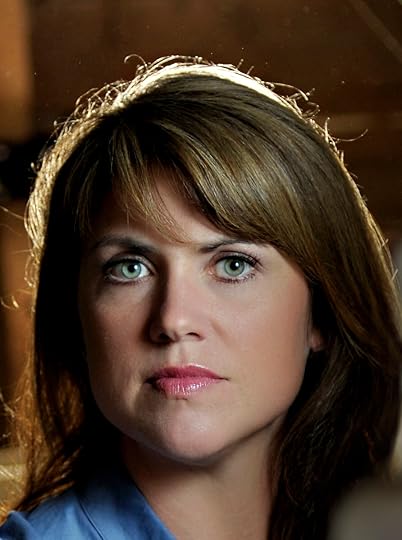 rint. As Lisa Gardner, she’s written an FBI Profiler series, as well as the Detective D.D. Warren series, and standalone novels. As Alicia Scott, she’s written romance novels.
rint. As Lisa Gardner, she’s written an FBI Profiler series, as well as the Detective D.D. Warren series, and standalone novels. As Alicia Scott, she’s written romance novels.
In Crash and Burn, Lisa brings back Tessa Leoni and Sergeant Wyatt Foster. Nicky Frank, a married woman, survives a horrific car crash on a rainy night off a desolate highway in New Hampshire. Though severely inju...
"Crash and Burn" A Talk with Lisa Gardner
In Crash and Burn, Lisa brings back Tessa Leoni and Sergeant Wyatt Foster. Nicky Frank, a married woman, survives a horrific car crash on a rainy night off a desolate highway in New Hampshire. Though severely injured, she crawls up a steep embankment and flags down help, begging police to find her missing daughter, Vero. A massive search is launched. When Nicky’s husband Thomas shows up, he drops a bombshell on the police: there is no Vero. He tells the police Nicky suffers from a brain injury sustained in two previous accidents, and has conjured the child from thin air. But as the detectives investigate, many questions arise. Is the child a delusion, or is she real and in grave danger?
How and when did you begin writing fiction?
I wrote my first book at seventeen. I was very lucky because it was published three years later. I started my career as Alicia Scott, writing romantic suspense novels. There was always a dead body and an investigation. I wrote seven or eight of those novels, and got more and more interested in suspense. I also grew more comfortable doing research and cold-calling detectives, prisons and morgues. The more research I did, the bigger the crimes became.
I came up with the idea for a standalone thriller called The Perfect Husband. It featured a serial killer who broke out of a maximum security prison. His revenge against everyone who put him there included pursuing his ex-wife. So, even back then, I was writing a kind of domestic thriller. That was my first Lisa Gardner book, and I’ve never looked back.
What made you begin writing at the young age of 17?
I didn't know any better. Seriously. I lived in Oregon. Had never met an author, editor, agent. In other words, I had no idea how hard it is to write a novel, let alone how impossible it is to get one published. On the other hand, I had an idea for a murder mystery. So I wrote it.
How did you manage to get published by age 20?
Once I started telling people I'd written a book, they asked when I was going to publish it. This was a new thought for me. But a good friend helped me find a book on how to get published. This was back in the early 90s when the paperback market was exploding, so demand for new voices was higher. I followed the steps for submission spelled out in the guide. Several years and several rewrites later, my first book found a home! (I'd told friends when my book sold I was going to buy a Mercedes! Big successful author, right? First lesson in publishing: my book did sell, and I earned just enough money to buy a computer, and even then I had to wait for the computer to go on sale. But it was still absolutely amazing to hold the finished novel in my hands. It gave me goose bumps.
I understand that while writing your first crime/suspense novel, you were working in the food service industry. After your hair caught on fire a number of times, you decided to focus solely on writing. Tell us about that.
Like many novelists, at the beginning of a career, you’re writing for love, not money. It took a good ten years for me to become an overnight success. (Laughter). I had many jobs; one was as a waitress at a Greek restaurant. They had an appetizer called flaming saganaki, which is deep-fried cheese over which brandy is poured and then lit on fire. It was the nineties and a time of really big hair. If you didn’t pour the brandy properly, the fire could blow back and get onto your hair. It happened quite often. I got plenty of “pity tips” from patrons because of it. So, I’m really grateful every day that the writing thing worked out.
You once described your writing process as “out of the mist.” Tell us what you mean by that?
I’m not a plotter. I do lots of research. It’s one of my favorite parts of writing. I may know some key forensic points, but I don’t like knowing what’s going to happen next. If I already know who the good or bad guys are, then the reader will know, too. For instance, with Crash and Burn, when I began the book, I didn’t know if Vero existed. I didn’t know if Thomas or Nicky were good or bad. I prefer it when characters can go either way—good or bad. There’s more complexity, and there are some secrets. One of the things that keeps me showing up each day and writing is that at some point, I want to know the answer.
You’re known for doing a good deal of research. In fact, it’s clear from Crash and Burn, you researched Post-concussion Syndrome. But you’ve also talked about the dangers of doing too much research. Will you comment on that?
I think doing research is the most fascinating part of my job. I get to speak with people who do really cool things for a living. You can surf the Internet and talk to experts, but at the end of the day, you must sit down and start writing. You have to produce a novel—you must tell a compelling story.
Speaking of research, I know you depend heavily on experts in various fields. Tell us about that.
The most fun I ever had doing research was cold-calling a body farm, an anthropological research facility. That was for the first Tessa Leoni book, Love You More. The novel involved skeletal remains, and I spent three days working with a forensic anthropologist. Other kinds of experts with whom I’ve worked have been physicians; boxing coaches; medical examiners; computer forensics experts; firemen; blood spatter experts; and firearms coaches. I’ve been to four or five different prisons. For Crash and Burn, I dealt with an auto accident reconstruction expert. Each book I’ve written has been a learning experience for me.
What would you be doing if you weren’t a writer?
Probably some type of criminology. With all the research and consulting with experts, what’s fascinated me most is the psychology of crime. What is the nature of evil? Is it inborn or acquired through the environment. Or is it a product of abnormal physiology, such as with the Texas bell tower sniper who had a brain tumor. I write fiction, but if I wasn’t doing that, I think I’d be involved in criminology.
You’re one of the most successful novelists working today. What has surprised you about the writing life?
It doesn’t get easier. With thirty books written, you would think I’d feel proficient, but each book is painful in its own way. To paraphrase Dorothy Parker’s observation: I don’t know that I like writing. I know I like having written.
I’m always just feeling my way to that other side—the completed novel. I feel I’m forever gnashing my teeth and banging my head against a blank computer screen. (More laughter)
What do you love about the writing life?
I love that magical moment when it all comes together in a way I couldn’t ever have imagined. I always think of writing as a giant leap of faith. There’s that “Ah ha” moment when things just fall into place. Those days are amazing and precious. The art takes over, it all comes together, and I’ve actually completed a novel despite myself.
If you could have dinner with any five people, from the literary world or from history, living or dead, who would they be?
One would have to be Stephen King. He’s my favorite author and an inspirational voice in my career. I loved his book, On Writing. I think he would be amazing and fun to talk to. I would like to invite Queen Elizabeth I, because she was a woman who ruled at that time in history; and because of everything she accomplished. I’d love to have Grace O’Malley, the pirate queen, and Elizabeth’s arch rival at the dinner, too. Ben Franklin would have to be there. He was a great philosopher, thinker, writer and an inventor, too. And then, I’d love to have Sherlock Holmes to round out the dinner party.
Which authors do you enjoy reading today?
Stephen King, Karen Slaughter, Tess Gerritsen, Lee Child, Laura Hillenbrand, Kristin Hannah, and I read a lot of YA with my daughter.
Crash and Burn, an intriguing story that calls into question the reliability of memory and one’s perception of reality.
January 13, 2015
“The Assassination Option” A Talk with W.E.B. Griffin
W.E.B. Griffin writes military and detective fiction and has more than 40 novels published under that name. He has published 200 books under 13 different pseudonyms.
He joined the U.S. Army in 1946 and was involved in counter-intelligence. After his army se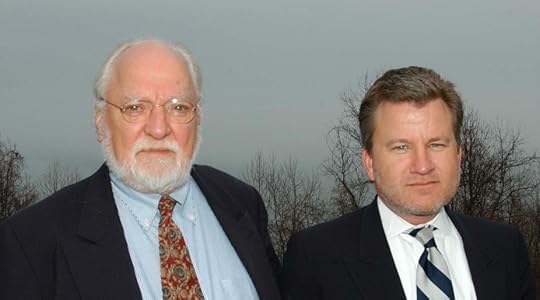 rvice, he began college, but his studies were cut short in 1951 when he was recalled to serve in the Korean War as a correspondent. At the end of the war, he continued working for the military in a civilian capacity. After his first three no...
rvice, he began college, but his studies were cut short in 1951 when he was recalled to serve in the Korean War as a correspondent. At the end of the war, he continued working for the military in a civilian capacity. After his first three no...
January 9, 2015
"No Fortunate Son" A Talk with Brad Taylor
His seventh military thriller, No Fortunate Son features protagonists Pike Logan and Jennifer Cahill, members of a top secret extralegal unit known as The Taskforce, created to contain terrorist plots and global threats. TaskForce members have been mobilized because relatives of key members of the U.S. government, including the Vice President’s son, have been kidnapped. The U.S. must face a terrible choice: stop counterterrorist operations or watch their loved ones die.
You spent 21 years in the military. Did you want to be a writer even back then?
Yes. I’ve always been a voracious reader. I imagined I was going to write a book someday. I never had any instruction or formal courses, but always want to do it. Compared to my other assignments in the past, teaching at the Citadel was like stepping off a bullet train and then walking. I had much more time on my hands, and decided to see if I could write a book.
With no writing background, how did you manage to find representation in today’s publishing climate?
I had no experience with publishing. I just did it the old fashioned way. I wrote the book and then went to a bookstore. I combed through books in the thriller genre section, read authors’ acknowledgements, and started writing query letters to various agents. I got the usual number of rejection letters, and eventually found an agent. It didn’t take him too long to sell the first book in 2010. I can say this: it took a lot longer to find an agent than it did to find a publisher. I was extremely lucky. And, there have been six more books since that first one.
How do you compare the writing life to your former life in the military?
Now, I do whatever I want. I still do a good deal of security consulting, and keep my hand in the military, but it’s a very different life now. I’m my own boss. I write when I want to. I have so much more freedom now than before.
You exemplify the old maxim: ‘Write what you know.” Do you find yourself doing much research when conceiving and writing your novels?
Actually, it’s much more research than I thought I would have to do. Writing what you know is certainly a good maxim, but it’s really surprising to learn how much you don’t know despite thinking you already do. I have to research everything from the operating mechanism of an AK-47, to specific settings and locales in each novel. For instance, in No Fortunate Son, I travelled to Dublin, Cambridge, London, Brussels, Paris, and many other places, doing on-the-ground research for authenticity.
When I travel to these locations, I’m not necessarily looking for anything specific. I go there to get the sights, smells, and sounds of the areas. While walking around, I take photos and make notes. As I’m writing the book, I might be thinking, ‘Okay, I need a setting for some event that’s going to happen.’ So, I refer to the pictures, and get a feel for the locale.
You’ve had immense success as a relatively new writer. What about writing has surprised you?
When I first started writing fiction, I didn’t really know what I was doing. I’d never had any instruction, except for reading voraciously. You could say I’m a great copycat. I guess it’s the same with forgers. Because someone’s a forger doesn’t mean he can’t paint. What surprised me most was the need to learn and perfect the craft of writing. It involved learning how to pace a novel and how to improve character development. An example of how much I had to learn is this: when I started my first book, One Rough Man, I didn’t even have chapters to break up the story. I just wasn’t sure how to do it. So, realizing how much there was to learn about writing has surprised me, and I think I’ve gotten better at the craft with each book.
What do you love about writing?
I love creating something. I don’t write for a particular market or write what I think people want to read. I write what I would like to read. That’s what’s most satisfying to me. When I write a scene and reread it, it gives me tremendous satisfaction to feel I’ve hit the nail on the head with the description or situation I’m depicting.
You’ve mentioned having always been a voracious reader. Looking back, who are the authors you feel most influenced you?
That’s a tough question because there have been so many. Even going back to childhood, there were many. The first one who comes to mind is Richard Adams, the author of Watership Down. It was a great book. I think I’ve read every genre. I went through a science fiction phase with Robert Heinlein. I went through a Ray Bradbury and a Stephen King phase, and others, too. It would be hard to pick out any single author. I think they pretty much all influenced me one way or another.
Who do you enjoy reading now?
I mainly read crime thrillers. Right now, I’m reading John Sandford’s latest, Deadline. I read Robert Crais, Michael Connelly, John Lescroart, Joseph Finder, and those kind of books.
Do you read when you’re actively writing a novel?
Actually, I’m doing a lot less reading these days because I devote so much time to research and writing. I don’t choose to avoid reading, I just don’t have enough time anymore to read as much as I would like. I usually read when I’m on a plane, or before I go to bed, but I no longer carry a book around with me. If I’m sitting somewhere, I take out my my journal and make notes for a new scene.
Do you outline your novels or do you let the stories fly spontaneously?
I don’t really outline. I create what I call a framework. I know the threat I want to depict; I know the general scheme that will unfold in the story. Most of the time, I know the ending of the book, but not always. I don’t outline a novel, chapter by chapter. It just evolves. I like to think of the framework as a road on the Kansas prairie, but by the time I’m done, with all the twists and turns, it looks like a switchback in the Appalachian Mountains.
What’s your next project?
I’m in the middle of the next book which is called The Insider Threat. It involves the Islamic State. The basis of the book is actually Bowe Bergdahl’s disappearance in Afghanistan a few years ago.
Congratulations on writing No Fortunate Son, a chilling novel for our time, with a frighteningly realistic plot.
“No Fortunate Son” A Talk with Brad Taylor
Brad Taylor spent more than 21 years in the U.S. Army Special Forces, including 8 years in the 1st Special Forces Operational Detachment, commonly known as Delta Force. His last assignment was teaching at the Citadel.
His seventh military thriller, No Fortunate Son features protagonists Pike Logan and Jennifer Cahill, members of a top secret extralegal unit known as The Taskforce, created to contain terrorist plots and global threats. TaskForce members have been mobilized because relatives of...
January 7, 2015
"Trust No One": A Talk with Jayne Ann Krentz
Trust No One, a contemporary romance-suspense novel, features Grace Elland, a creative marketing assistant to a Seattle-based motivational guru. Grace discovers her boss’s body, and after reporting it to the police, begins receiving cryptic and vaguely threatening emails. Strangely, they come from her dead boss’s computer. To make matters worse, when she was a teen-ager, Grace also found a dead body, an event that left her with night terrors and panic attacks. Even worse, it appears someone is trying to frame Grace for her employer’s murder.
You’re an outspoken advocate for the romance genre. What are your thoughts about the genre and its standing?
The romance genre is slammed with the same critiques applied to all popular fiction. I think it’s because people tend to take popular fiction for granted. They don’t appreciate that romance novels, and all popular fiction, transmit our culture’s core values to the next generation. Romance novels convey values especially important to women. Most crucial is the belief in the healing power of love. In popular fiction—romance included—the values we see preserved are ones everyone recognizes: an appreciation of honor; the healing power of love; doing the right thing when the chips are down; and the issue of good versus evil. The romance genre—along with other forms of popular fiction—affirms those values. They really derive from ancient heroic literary traditions.
I also find the romantic suspense novel to be a very American genre. It captures the essence of two strong characters facing a dangerous situation in which they must work together to survive. It’s an American story with its roots in the old Wild West. As Americans, it’s really our story.
Do these elements make romance novels so enduring?
While the healing power of love is probably the core value, there are other factors that account for the enduring power of the genre. Romance novels affirm the importance of nurturing and of loving protectiveness. The foundation of “family” is at the center of the story. It’s not about sex; nor about romance, per se. It’s all centered on family. I think that’s why the appeal of romance novels is so enduring. Most women, and many men, too, have an appreciation for family. That’s the key to the romance story. Rather than calling the ending a ‘happy ending,’ the ending of a romance novel is actually the formation of a new family.
Do you see your audience as being primarily women?
I write a story to satisfy myself. I don’t really focus on the audience. I think about what the story needs in order to be satisfying to me. Statistically, yes, most readers of romance are women. But, keep in mind, the majority of all fiction is read by women. I think the suspense and thriller genres tend to appeal more to men because they’re the warrior stories. But, one of the most popular male writers among women is Lee Child. I understand in his latest Jack Reacher novel, Reacher learns he has a son. And that’s important because if you don’t have a family, you don’t have a future.
Trust No One is written from both Grace’s and Julius’s perspectives. Is it an advantage to write from multiple points of view?
I think using a few perspectives helps the story tell itself in a way that satisfies the reader. I like being in different characters’ heads. That technique expands the story, gives it more depth. One of the risks a writer takes when he or she starts jumping around from one character to another—sometimes called hip-hopping—is the danger of distancing the reader. If you bounce around too much, the reader may lose the sense of identification with the main character. So, it’s a balancing act.
Do you ever use the first person narrative point of view?
I’ve never done that. Actually, many of us grew up with that technique, having read Gothic novels. A number of them were written in the first person, but I think that perspective limits the story’s reach. For instance, in the first person narrative, you can’t really talk about what the bad guy is doing or thinking.
From your oeuvre of works, it’s clear you’ve written two, three, and sometimes four novels a year. Tell us about your writing schedule and routines.
Nowadays, I think you’ll see many more mystery and thriller writers doing more than one novel a year. Robert Parker was writing three a year. John Sandford is doing two. It’s always been a marketing consideration. I wrote a good number of novels each year at the beginning of my career, but don’t do it anymore.
I’ve always been a disciplined writer. Most successful writers I know are very disciplined. I’m at the computer at seven in the morning. I work until about noon; after that, any creativity I may have is pretty well shot for the day. Then, life gets in the way and I go shopping. (Laughter).
Is there a reason you’ve used so many pen names over the years?
It was always a business decision. There were times when I was writing for two or three different publishing houses and they each demanded a different name. They wanted to tie up a particular name.
You’re still using three different names for your novels.
Yes, I’ve been using those three names for three years. The market changes from season to season. One season, the Amanda Quick name works better; and the next season, Jayne Castle takes off. I want to leave one or two names behind, but as long as they work, I’ll keep using them. They allow me to take my core stories into three different landscapes or subgenres. I find it refreshing to move among my three worlds.
Is it accurate to say you created the futuristic romance subgenre with the novel Sweet Starfire?
People credit me with that, but I got the idea from Anne McCaffrey.
The erotic scenes in Trust No One are done very artfully. Will you talk about writing erotica?
To an extent, it’s like writing violent scenes. The trick is to remember that what happens physically isn’t the important thing. What matters most is the emotional element. It’s crucial to depict the emotions with which the characters enter the scene, and those they have at its conclusion. The erotic scene should be a life-changing event. It should add to the progress of the romance itself, in the same way an act of violence must trigger the next step in a thriller novel. In order to rise above the level of prurience, the erotic scene must demonstrate growth—in either character development or the novel’s plot.
You’ve had such writing success for years. What about the writing life has surprised you?
What surprises me is the fact that today, authors get stuck with so much of the marketing end of publishing. It wasn’t the case when I started out. I think it’s because of the chaos in the industry now. Publishers used to get your book into bookstores and they did the marketing. But today, with so much happening online, the reality is that most writers are forced to do a great deal of their own marketing.
What do you love about the writing life?
I just love seeing a scene come together on the page. I live from scene to scene. If I actually sat down and thought about the fact that I’ve got five hundred pages to go, I’d be doomed before I started. Each scene, for me, is a little story unto itself. When I get that scene just right, I feel so good.
If you could have dinner with any five people from history or literature, living or dead, who would they be?
Any five from the stable of writers who wrote the Caroline Keene Nancy Drew books, my favorite and formative series.
Congratulations on writing Trust No One, a contemporary romantic-suspense novel that’s certain to appeal to millions of people.



